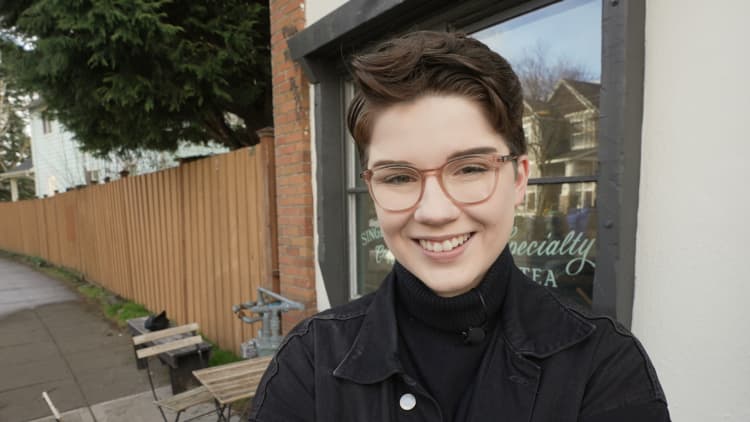Emotional intelligence is one of the most important skills you need to be successful at work — but it can also be the hardest to master.
Emotional intelligence, or the ability to identify and monitor our own and others' emotions, can be seen in how we manage our behavior, make decisions and navigate different social situations. Past research has shown it can be a strong predictor of success, even trumping IQ (intelligence quotient) and experience.
A high EQ (emotional quotient) helps you build stronger relationships, defuse conflict and cope with stress better. And nearly three in four professionals say a high EQ is more important than a high IQ to get ahead at work, according to the e-learning platform Preply, which surveyed 1,006 Americans working in-office or remotely.
What most people fail to realize, though, is that developing emotional intelligence "doesn't come naturally," Harvard psychologist and researcher Daniel Goleman once told CNBC Make It.
Becoming more emotionally intelligent at work starts with clear, empathetic communication, says Emily Liou, a career happiness coach and founder of job search platform Cultivitae.
Preply asked professionals which phrases they appreciate hearing the most and identified the 5 most popular phrases people use to sound more emotionally intelligent at work:
- "I appreciate you/your work"
- "What can I do to help?"
- "I hear you/I'm listening"
- "What are your thoughts?"
- "I'd love to hear more about [X]. Can we set up some time to talk?"
A simple "I appreciate you/your work" tops the list, with 34% of professionals ranking this as the No. 1 phrase they want to hear from their colleagues and boss.
The reason this phrase is so effective, says Dawid Wiacek, a career and executive coach, is because it's a simple way to express gratitude, but can have a "profoundly positive impact" on the person receiving the compliment.
"We tend to overuse a similar phrase, 'I love it' at work, to the point where it's kind of lost its meaning and significance," he adds. "So saying, 'I appreciate you' is refreshing, and it makes people feel valued and important."
Other phrases on the list, including "What can I do to help?" and "I'm listening" are effective because they show your empathy and concern for others as well as great listening skills, Liou says.
"Adults can throw tantrums, too," she says. "We can lash out, criticize others or shut down when we're frustrated or feel misunderstood. But it's impossible to avoid conflict work completely, so it's really important to be aware of how you manage conflict and treat others, or you risk being labeled as a difficult person to work with."
To be emotionally intelligent, you need to be an active listener, she adds. Don't multitask during conversations with co-workers, and if someone is sharing something about themselves, be it an anecdote, a work-related problem or a different topic entirely, resist shifting the focus to you.
"Most people are quick to jump into their own stories or opinions when a co-worker tells them something, in an attempt to relate to them, and that can get annoying, fast," Liou explains. Instead, listen quietly while the other person is speaking, and when they're done, ask follow-up questions, or simply say: "I hear you."
Ultimately, emotional intelligence is a critical trait that sets high achievers apart from their peers, Waicek says, because people want to feel "seen, heard and validated" just as much at work as they do in their personal lives.
Adds Wiacek: "It's simple: In helping others, we help ourselves."
DON'T MISS: Want to be smarter and more successful with your money, work & life? Sign up for our new newsletter!
Take this survey and tell us how you want to take your money and career to the next level.
Check out:
Avoid these 10 'cringeworthy' phrases that are annoying your co-workers
Want to sound smarter at work? Avoid these 10 pretentious phrases
Microsoft CEO Satya Nadella's No. 1 tip for career success—if you don't do this, 'you can't grow'



